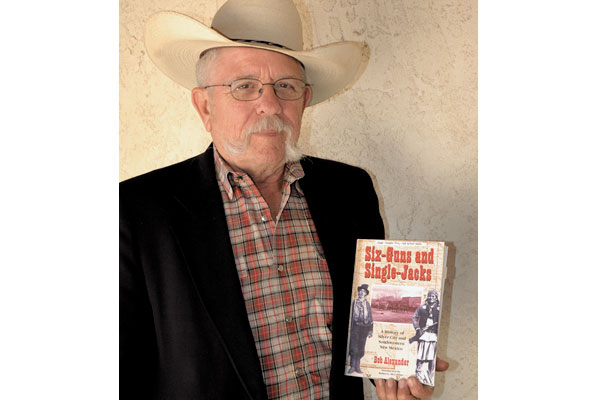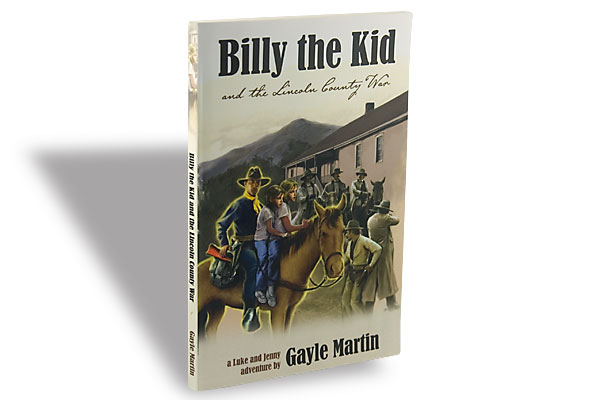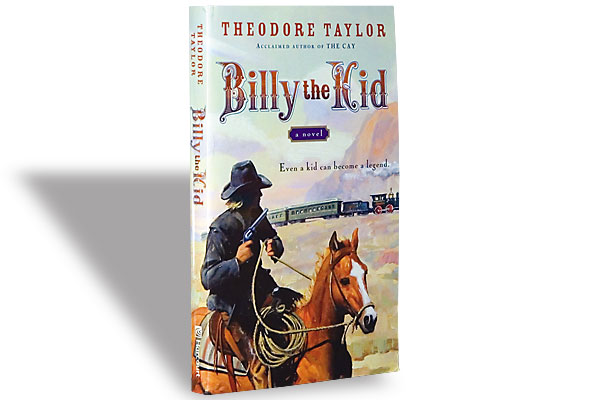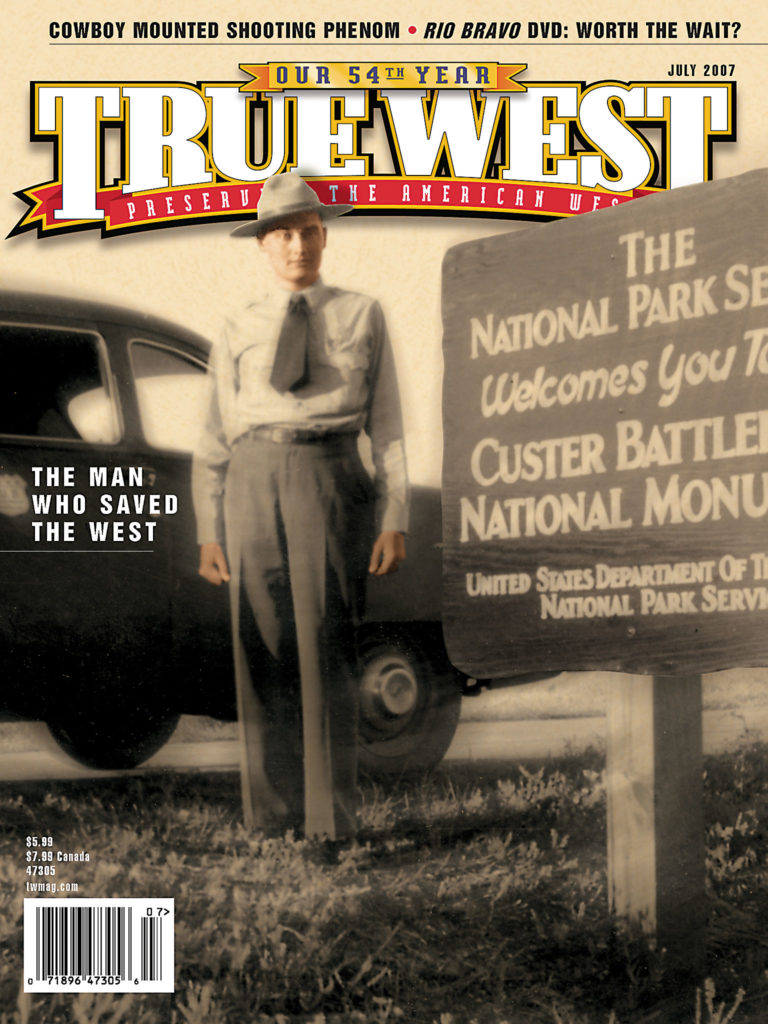 -“That avaricious Americanized way of thinking measured individual achievement in terms of acquisition. Rapaciously conquering and dominating the land, making it pay whopping dividends, was much preferred to eking out subsistence living by tending a cow and tilling a family garden plot,” Bob Alexander writes in Desert Desperadoes.
-“That avaricious Americanized way of thinking measured individual achievement in terms of acquisition. Rapaciously conquering and dominating the land, making it pay whopping dividends, was much preferred to eking out subsistence living by tending a cow and tilling a family garden plot,” Bob Alexander writes in Desert Desperadoes.
Such an attitude led to a cultural conflict in El Paso County, Texas, in the 1870s in a war between the Texas Rangers and local hispanics over salt deposits.
When retired lawman Bob Alexander researches and writes a book, he builds the story just like he used to build a case. “What I try to do is try to start without an agenda, develop all of the information that I can, like I was building a case for presentation, and then let the reader be the jury, and never hide my sources of information,” Alexander says from his home in Maypearl, Texas.
This technique has served him—and readers of Western outlaw and lawman history—well over the past few years.
Alexander has been cranking out award-winning books on noted New Mexican lawmen such as Dan Tucker of Deming and Harvey Whitehill of Silver City. He has written a general history of Silver City (Six-Guns and Single-Jacks) and more books about lawmen including John Behan and Fearless Dave Allison. Alexander has won book awards from both the Western Outlaw Lawman History Association and from the National Outlaw Lawman History Association
His Lawmen, Outlaws and S.O.B.s Vol. 1 is coming out in a new paperback edition from High Lonesome Books. That publisher also has the second volume due out this year in hardcover and paperback, which will feature the stories of numerous Old West characters and showcase many previously unpublished photographs Alexander gleaned from private collections.
Gila Books recently released Desert Desperadoes: The Banditti of Southwestern New Mexico, with material about the El Paso Salt War, the early roots of Henry Antrim a.k.a. Billy the Kid and Black Jack Ketchum.
As with all his books, Alexander includes a liberal helping of straight talk in Desert Desperadoes. Chapter heads, taken from quoted material, include: “Send Us Immediate Help, for God’s Sake,” “The Place Was Running in Blood,” “I Came a Long Way to Kill This Son of a Bitch!” and “Bury Me Face Down So He Can Kiss My Ass.”
True West: Why a war over salt?
BA: Salt was the excuse. It was basically a conflict between Anglo-Americans and Mexicans and Mexican-Americans. At the time, El Paso was completely cut off from the rest of Texas transportation.
The Spanish-speaking population out there had a very difficult time understanding the concept of laws being passed at the state capitol in Austin, applying to them, especially when they were in conflict with generations of tradition. They had a communal attitude to the land. Salt and water: That was something that should be shared with the community. The Americans believed that whoever owned the land controlled [the resources]. That, with the school law (that required compulsory schooling for boys and girls) boiled over with strong personalities into the salt war.
Much of Alexander’s work touches on the history of Silver City. Henry Antrim/Billy the Kid was an early resident of Silver City, attended school there and even got into a few scrapes as a boy.
How did the atmosphere in Silver City contribute to Antrim’s personality?
At the time he was there, way before the railroad, it was indeed … a wild and wooly frontier culture, and a lot of disputes were handled immediately in the barrooms down in town. Silver City was an island in the sea of all the violence going on around the area, with the Indians and the outlaws raiding into Mexico and coming back into the United States. He was there, just as a boy, and was arrested for the theft of some clothing and two revolvers from a Chinese laundryman. He was placed in jail in Silver City but escaped through the chimney in the jail and fled to Arizona where he killed his first man of record—Windy Cahill. And after that, he fled back through southwestern New Mexico and into Lincoln County and the history books.
In Desert Desperadoes, what did you reveal about statements made by Billy the Kid’s schoolteacher, Mary Richards?
The daughter is paraphrasing what her mama said. In that paraphrasing that [the daughter] is doing in the 1950s or 1960s, she talked about how Billy the Kid got arrested for wearing women’s clothes. I don’t know what is true, but his teacher never said that in an interview, although she may have said it to her daughter. If we’re going to quote, let’s be complete.
Alexander does not make excuses for the people he writes about: “If they steal a cow, they’re a thief. If they murder someone, they’re a murderer.”
About Billy the Kid, he notes, “I think Billy the Kid was a little back-shooter, a little juvenile delinquent. Whenever he did something wrong, he ran off.”
For his next book project, Alexander will turn to the Texas Rangers and chronicle Company D of the Frontier Battalion. “I want to get down in the trenches and talk about what I would call the everyday working Rangers.”
With his attention to detail and his manner of building a case through writing, Bob Alexander is sure to put a new spin on the Texas Rangers.





